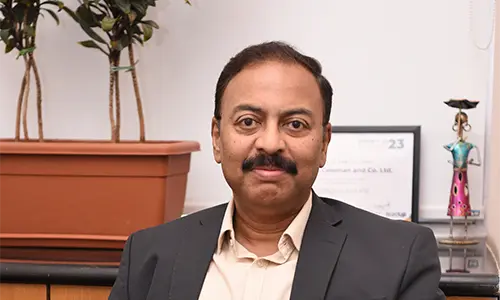Q:How has your vision as CHRO influenced BCCL’s approach to sustainability and Green HR practices?
A:My vision as CHRO has been to integrate sustainability into the core of our HR practices. At BCCL, we’ve adopted Green HR initiatives that promote eco-friendly policies, such as utilising every side and every corner of the paper while printing and avoiding paper where unnecessary in our operational processes and implementing energy-efficient practices, all aimed at minimizing our environmental footprint while fostering a sustainable workplace culture.
Q:Can you share a particular Green HR initiative that you've been directly involved in developing and implementing at a global level in the organization?
A:One of our key Green HR initiatives has been fostering a culture of sustainability by promoting awareness and encouraging eco-friendly behaviours among our employees. We recognize that meaningful change starts with everyday actions, so we’ve focused on integrating sustainability into our daily operations. This includes simple yet impactful practices like reducing energy consumption by optimizing our office lighting and equipment usage, minimizing waste through robust recycling programs, and encouraging the use of digital communication to reduce paper consumption.
Additionally, we’ve implemented awareness campaigns and training sessions to educate employees about the importance of sustainability, both in the workplace and beyond. By embedding these eco-friendly practices into our organizational culture, we aim to empower our employees to contribute to a more sustainable future. This initiative not only aligns with our broader organizational commitment to environmental responsibility but also helps us collectively make a positive impact on the planet.
Q:From your perspective, how have you seen the company's culture evolve towards greater environmental consciousness?
A:Over the years, I’ve seen a significant shift in our company’s culture towards greater environmental consciousness. This transformation has been driven by a collective understanding of the importance of sustainability and the role each of us plays in it. We've moved from isolated green initiatives to a more integrated approach, where environmental responsibility is embedded in our daily operations and decision-making processes.
Employees at all levels are more engaged in sustainability efforts, from participating in recycling programs to supporting energy-saving practices in the office. Our leadership team has also prioritized environmental goals, making them a key component of our corporate strategy. This cultural evolution has been reinforced by regular communication and training, ensuring that everyone is aware of the impact of their actions.
As a result, sustainability is no longer just a box to tick; it’s become a core value that guides how we operate, innovate, and grow as an organization.
Q:What has been one of the biggest challenges you've faced in promoting Green HR practices, and how have you overcome it?
A:One of the strengths of BCCL is its adaptive approach and respect for the environment, which has minimized challenges in promoting Green HR practices. The company has consistently supported sustainability initiatives, making it easier to integrate eco-friendly practices into our HR policies. By leveraging this supportive culture, we’ve been able to seamlessly implement Green HR practices and further our commitment to environmental stewardship.
Q:In the larger global context how is sustainability interconnected across dimensions?
A:In a global context, sustainability is seamlessly interconnected across environmental, social, and economic dimensions. Our commitment to environmental sustainability ensures the preservation of natural resources, which directly supports healthier communities and ecosystems. Social sustainability focuses on enhancing quality of life and promoting fair practices, benefiting from a stable environment. Meanwhile, economic sustainability drives growth and innovation, leveraging green technologies and practices that support both social well-being and environmental protection. By aligning these dimensions, we create a robust framework where each aspect reinforces the others, contributing to a more balanced and enduring global future.
Q:The UN SDG goals are a guiding light towards sustainability efforts globally, which are the goals adopted by BCCL (The Times of India), if you could illustrate the execution principles.
A:At BCCL, our sustainability efforts are aligned with several UN Sustainable Development Goals (SDGs). We advance Goal 4: Quality Education by offering training and development opportunities to enhance employee skills. Goal 5: Gender Equality is promoted through equitable hiring practices and leadership development for women. To support Goal 8: Decent Work and Economic Growth, we ensure fair labour practices and invest in a safe, productive work environment. We embrace Goal 12: Responsible Consumption and Production by adopting sustainable practices and reducing waste. For Goal 13: Climate Action, we focus on minimizing our carbon footprint through energy-efficient measures and environmental conservation initiatives. By integrating these SDGs into our HR practices, BCCL demonstrates our commitment to sustainability, benefiting both our workforce and the environment.
 Interview
Interview
